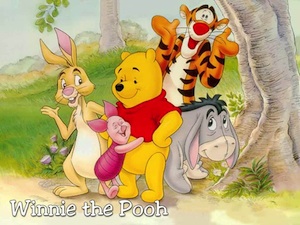Novelist Michael Chabon wonders whether denying children the freedom to roam is stifling their imaginations:
Childhood is, or has been, or ought to be, the great original adventure, a tale of privation, courage, constant vigilance, danger, and sometimes calamity. For the most part the young adventurer sets forth equipped only with the fragmentary map—marked here there be tygers and mean kid with air rifle—that he or she has been able to construct out of a patchwork of personal misfortune, bedtime reading, and the accumulated local lore of the neighborhood children.
A striking feature of literature for children is the number of stories, many of them classics of the genre, that feature the adventures of a child, more often a group of children, acting in a world where adults, particularly parents, are completely or effectively out of the picture. Think of The Lion, the Witch and the Wardrobe, The Railway Children, or Charles Schulz’s Peanuts. Philip Pullman’s His Dark Materials trilogy presents a chilling version of this world in its depiction of Cittàgazze, a city whose adults have all been stolen away. Then there is the very rich vein of children’s literature featuring ordinary contemporary children navigating and adventuring through a contemporary, nonfantastical world that is nonetheless beyond the direct influence of adults, at least some of the time. I’m thinking of the Encyclopedia Brown books, the Great Brain books, the Henry Reed and Homer Price books, the stories of the Mad Scientists’ Club, a fair share of the early works of Beverly Cleary.
[. . . ]
The thing that strikes me now when I think about the Wilderness of Childhood is the incredible degree of freedom my parents gave me to adventure there. A very grave, very significant shift in our idea of childhood has occurred since then. The Wilderness of Childhood is gone; the days of adventure are past. The land ruled by children, to which a kid might exile himself for at least some portion of every day from the neighboring kingdom of adulthood, has in large part been taken over, co-opted, colonized, and finally absorbed by the neighbors.
As a Gen-Xer I’m probably part of the last generation who had childhoods in which we were free to roam. When I was a twelve-year-old I was given a .22 semi-automatic rifle and allowed to roam the woods all day. I had almost total freedom as long as I agreed to one condition: I had to take my eight-year-old brother along with me. I can’t letting my own daughter out of the house without knowing where she is going or having a way (cellphone, text-messaging) to stay in constant contact with her.
I worry, along with Chabon, that, “If children are not permitted—not taught—to be adventurers and explorers as children, what will become of the world of adventure, of stories, of literature itself?”











